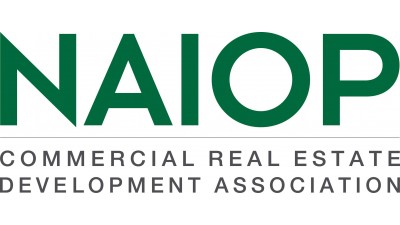As Demand For Flexible Office Rises, Owners Become ‘Community Builders’

As more companies, from startups to well-established businesses, rely on flexible office space to offer employees more user-friendly and cost-effective working experiences, the practice of leasing and maintaining private tenant offices is falling out of favor. More companies want access to turnkey workplace solutions and places to grow into.
Building owners are embracing the phenomenon of flexible office space, as many look to create their own flexible spaces across office portfolios. In places like London, small flexible office space operators make up 83% of the market. But to participate in this growing trend, owners have to leave behind preconceived ideas of leasing office space. They must become curators of workplace experiences.
“For owners, dealing with small tenants has never been something that you wanted to focus on,” SharedSpace principal Daniel Levison said. “To do a 500 SF deal takes as much effort as a 2,500 SF deal. But coworking has changed this to focus on building communities in office space as opposed to just leasing space.”
SharedSpace is a coworking provider based in the Atlanta Metropolitan area. The company focuses on building a community for entrepreneurial small businesses, creating spaces that emphasize collaborative workspaces and networking. It also offers flexible office space where more established companies can have private offices on a shared floor. But rather than create these spaces in a silo, SharedSpace offers its amenities to other tenants in the building, increasing the value of its other leases.
“We have been able to do some deals because our tenants don’t need to put two conference rooms in their space, they can use our coworking space with six conference rooms upstairs,” Levison said. “Or folks can come upstairs and work in the open environment, as they can in our case without an additional charge. It becomes an amenity of the building. The whole building becomes a community.”

While SharedSpace and other coworking providers focus primarily on companies with less than four people, flexible office space has also made inroads with larger companies. Over 44% of corporations are already using some type of flexible office solution, often as a way to gain access to innovators across multiple industries. But the migration of big companies into coworking spaces could be for more than just an alternative workspace to recruit professionals or appeal to the growing demographic of remote workers. Changes to accounting rules for real estate investments now require leases longer than a year to be recorded on a company’s balance sheet.
Because flexible workspace operates on monthly, short-term leases, maintaining space in a coworking location could be a way to navigate around this rule.
Whether catering to small businesses or established corporations, there are a few routes building owners can take when offering a coworking space or partnering with a provider, Levinson said. The first is to own the building outright through an investment group. From there, a landlord could designate a part of the building as a coworking space. Another option is to partner with an existing building owner as the tenant or act as the property manager for the asset. WeWork has already begun to experiment with the latter, creating a property management division.
Regardless of the method, owners-turned-coworking providers have seen an increased return on investment, and this approach offers landlords increased flexibility. A tenant looking for more office space but with none in their current building available could use a coworking space on the property until a larger long-term lease frees up. Owners retain tenants and improve business activity.
“The margins in the coworking business are better than they are in the rest of the building,” Levison said. “It really makes some good sense for building owners to partner with these providers.”
Levison will speak on the “The Reality and ROI of Flexible Workspace” panel at NAIOP and GWA’s FlexOffice 2018 event from Sept. 12-14 in Austin, Texas.
This feature was produced in collaboration between Bisnow Branded Content and NAIOP. Bisnow news staff was not involved in the production of this content.

